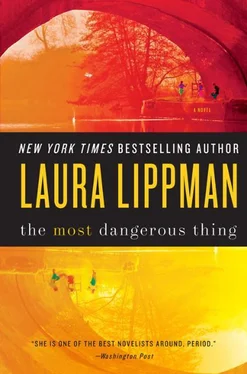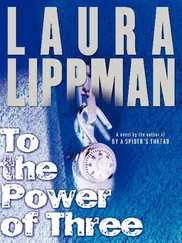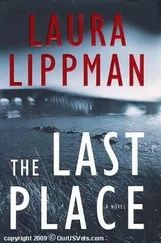“Dr. Robison?”
“Yes, Amanda?”
“What do you think I should do?”
Quit . But his instincts about people, which are excellent, tell him not to be direct with this young woman. There is something a little dangerous about Amanda. He’s not going to flatter himself into thinking she would sleep with him to improve her situation, yet she clearly wants something from him. She almost vibrates with neediness. She is used to people volunteering to help her, figuring out what she requires even when she doesn’t have a clue herself.
“We would have more options if you had come to me before you received a failing grade,” he says.
“But I wasn’t failing until I took the final.”
“You were marginal throughout the year. You had to know you were skating by, that you were rolling the dice.”
“No,” she says, shaking her head. Her mannerisms are so childish. Perhaps she has confused her own immaturity with an affinity for the young.
“You could take a semester off,” he says. “Come back at midyear, retake the class. Plead special circumstances.”
“Such as?”
You’re not very intelligent . “That’s not for me to say. Amanda”-she brightens at the very sound of her name, like a dog or a small child-“tell me-why do you want to be a doctor?”
“I’ve always wanted to be a doctor.” She is slipping into a speech, a performance. She has recited this story before, probably to much nodding approval. “When I was four, I opened a hospital for my toys. And I really fixed them-put dolls’ arms back in their sockets, sewed on a teddy bear’s eye.”
Ah, but the toys couldn’t complain.
“It’s the only thing I’ve ever wanted to do. I can’t imagine anything more rewarding than taking care of children. Especially babies, who can’t tell you where they hurt or what’s wrong.”
“I’m not sure being a doctor is supposed to be rewarding,” he says.
Amanda’s eyes bug at this bit of sacrilege. She is not, upon second look, as attractive as she clearly thinks she is. Her features are not proportionate. The big eyes are a little goo-goo-googly, the mouth broad, and the heart-shaped face can’t quite contain it all. She looks like a cartoon deer.
Goo-goo-googly makes Clem think of Go-Go again. Again, there is a flash of-it can only be called revulsion. But he’s a little boy. Nothing was his fault. The adults have to take responsibility for what happened.
“I mean-it is, at times, very rewarding. But that’s not the point, the main thing of it. We don’t become doctors because of how it makes us feel. We become doctors because we want to care for others. What we feel and experience is secondary. We are here to serve patients.”
“Your specialty is geriatrics.”
“Yes?”
She is groping toward a point, although lord knows what it is. That he doesn’t understand her desire to care for children? That his patients are closer to natural death and therefore less important, or simply crankier and more demanding? Why does he even bother? She probably will muddle through, end up in a pediatric practice. Chances are, she will be no worse than clumsy, the kind of doctor that children hate and everyone thinks it’s just their child. There will be mistakes, but they won’t be fatal. Serious, perhaps. Vulnerable to lawsuits. But she won’t manage to kill anyone, and her colleagues will cover for her because that’s what doctors do. Clem believes every profession covers for its incompetents. So do families. Any group, no matter how loosely affiliated, will always close ranks against the world at large.
He gives Amanda a generic pep talk, sends her on her way. He needs to review three other student files before he meets with them this afternoon, but he feels logy. If he sits here, he’ll fall asleep. He will go for a walk, maybe buy a hot dog from one of the carts.
The University of Maryland sits in a forlorn, somewhat forgotten corner of southwest downtown, although the neighborhood is beginning to catch a second wind. When the highway project was halted by community opposition-and Clem was one of those who fought it, because of what it would have done to Leakin Park, its flora and fauna-the city was left with blocks of houses it had planned to demolish. These “dollar” houses in nearby Otterbein ultimately were awarded in a lottery to those who promised to renovate them and live in them for at least five years. Some of those houses will come on the market soon, although the neighborhood is far from gentrified, despite talk about Federal Hill becoming the next Georgetown. Baltimore is one of those cities that defines itself by such comparisons. The next this, the next that. Except maybe Johns Hopkins, which considers itself far above the city, apart from it. But Clem has no regrets about choosing the University of Maryland. It’s a good school, too, and it doesn’t have to shoulder the weight of a worldwide reputation. Renown is overrated. Plus, one becomes responsible for all of one’s colleagues at such places. In the public’s mind, Hopkins is Hopkins is Hopkins. He can’t imagine that everyone at Hopkins is pleased with John Money right now, given his recent pro-incest comments in Time magazine. If Clem worked at Hopkins, he’d probably be asked about that constantly, would not be able to persuade people that a geriatric specialist has no overlap with the sex clinic.
It’s a finer day than the morning had promised, and Clem decides to walk north, up Eutaw, to the pleasant chaos of Lexington Market. He won’t go so far as to say that he prefers Baltimore to his hometown of Boston, but he considers it a fair trade, especially since they moved into the house on Wetheredsville Road. Boston was fine. He understood it, and it understood him. But Tally wanted to leave, so they left-and allowed her to make him the scapegoat, telling her family it was Clem who desired a change. He shields Tally often from such unpleasant situations, but it’s a small price to pay for being married to her. He’s a lucky man. Other men, seeing Tally next to him, have told him that over and over. Twenty-five years after the fact, he still flushes at the memory of those early days with Tally. At least she wasn’t his student, although that’s what everyone seems to infer.
Still, it was illicit by his standards, even a little sordid. That was part of its charm. And she had taken the lead. No one would ever believe that, and he would never say as much out loud. It’s not gallant, for one thing. Perhaps the truth is seldom gallant. Eighteen-year-old Tally Duchamp seduced thirty-two-year-old Clement Robison. He had no idea why she wanted to be with him, and he is even more baffled by why she stays with him. She is a headstrong woman, capable of marrying someone merely to antagonize her parents, then staying in that marriage to prove them wrong. Tally has enormous staying power for grudges.
But she is fickle in almost all other aspects of her life. Clem has watched her flail and fail her way through a remarkable number of projects, attacking each enterprise with great energy, then dropping the new activity when the early passion dissipates. He should find it reassuring that painting seems to have taken hold, that she finally is finding a place to channel her formidable energy, especially now that Gwen is only a few years away from leaving the nest. But Tally’s current obsession unnerves him. She seems to be using it to wall herself off, to escape from the family. Did he feel that way before the night of the hurricane? Or is he projecting on her the burden of his secret? If she knew what he knows, she would be within her rights to distance herself.
He wonders if Tim and Rick have broken their pledge. There is a prevailing theory that there are no secrets in marriages, not good ones. If they have confided in their mates-well, he envies them. He would love the release of telling someone, to hear someone say: What could you have done? Or: I don’t see that you had any choice. The problem is, he doesn’t trust Tally to say those things. Her best quality is also her worst. She’s relentlessly, reluctantly honest when asked her opinion. Oh, she won’t volunteer it, won’t go out of her way to make someone feel bad. She tries to be tactful. But if you insist on knowing what she really thinks, you’d better be prepared to take it. Sometimes Clem isn’t.
Читать дальше
Конец ознакомительного отрывка
Купить книгу












